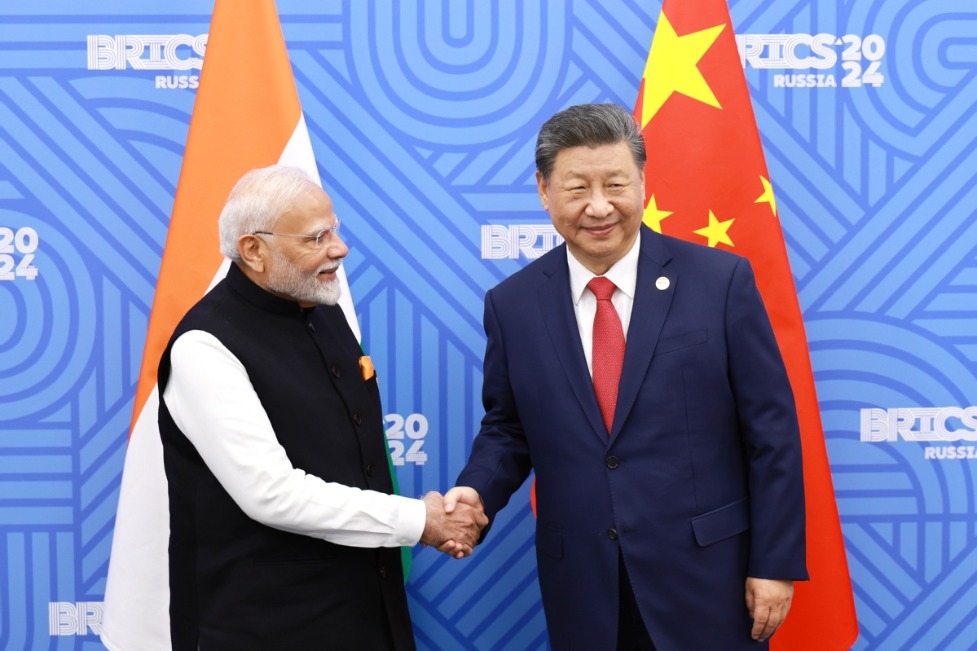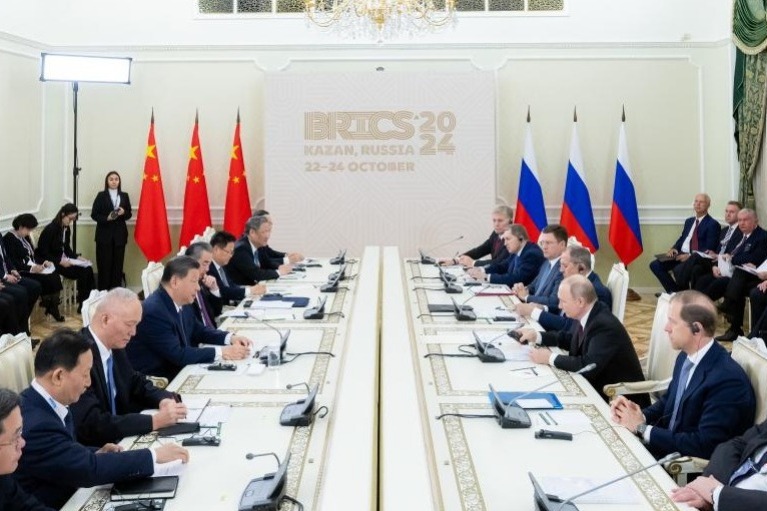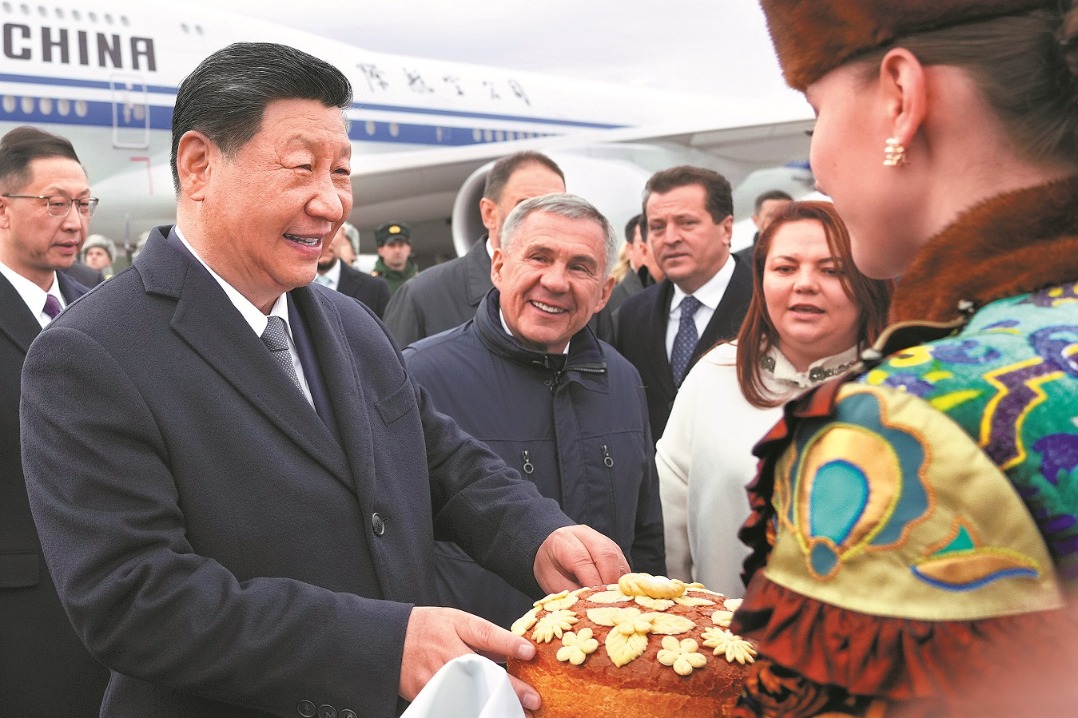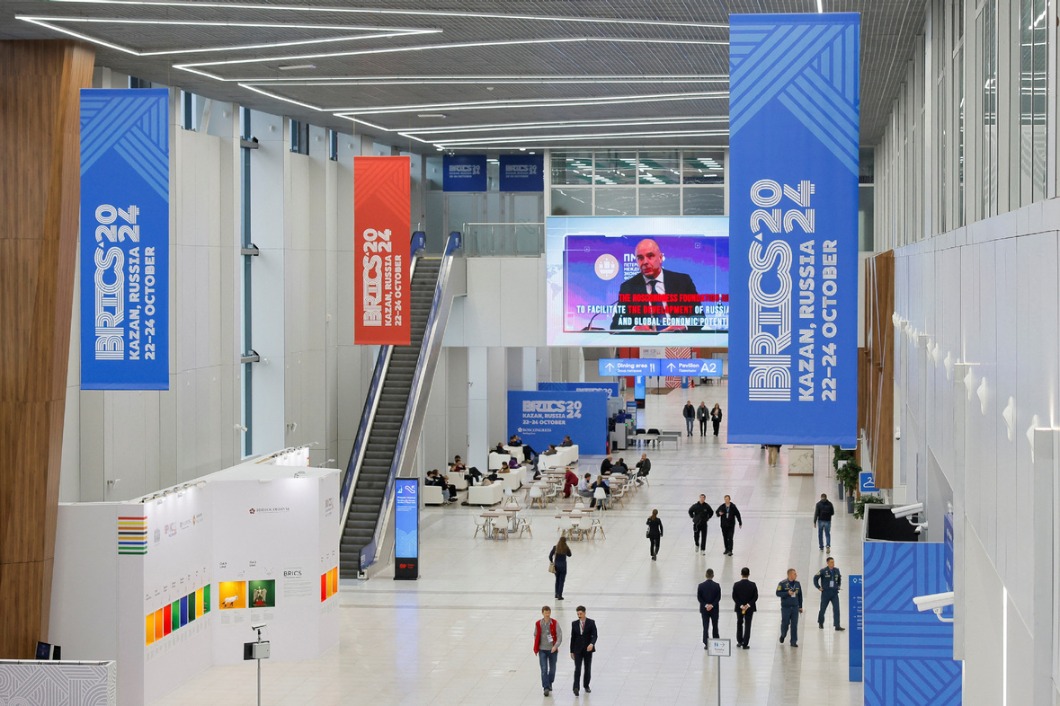Global economy getting out of the dollar trap


The international monetary system is undergoing an unprecedented change, pivoting away from the US dollar — which can be called "de-dollarization". The United States has been abusing the dollar's monopoly in global trade, reaping massive benefits from the greenback's supremacy and frequently imposing economic sanctions on other countries and entities, which have not only exacerbated global economic risks but also eroded its global credibility.
The first manifestation of dollar hegemony is the siphoning off global liquidity in every dollar cycle. The dollar has reigned supreme in global trade and foreign exchange transactions, and as reserve assets, with the US Federal Reserve literally becoming the world's central bank. The Fed's monetary policy steers the global monetary policy cycle, and the fluctuations in US interest rates have a tidal, siphoning effect on global dollar liquidity. The dollar's trajectory has been rising this year, with the dollar index breaking the 110 mark, a 20-year high, while currencies such as the euro, the yen, the Republic of Korea's won and other major non-US currencies have been pushed over a cliff.
According to the Bank for International Settlements, the nominal effective exchange rate of the dollar against a wide range of currencies, including those of developed and emerging countries, was at its highest level since 1994, when such data were first released. The cyclical fluctuations of the dollar have led to drastic swings in global exchange rate markets. That, in turn, has unsettled the macroeconomic and financial systems of countries and even led to frequent financial crises. The US stands to benefit massively as capital flows into its market, and uses its currency to harvest the wealth of other countries.
As such, the dominance of the dollar has become the greatest systemic risk to the international monetary system.
The second manifestation of dollar hegemony is the US' abuse of economic sanctions. The history of the dollar cycle shows that strong cycles have often coincided with "dollarization". But in a departure from the past, the current strong dollar cycle, instead of coinciding with dollarization, coincides with de-dollarization.
According to Bank of International Settlements data, the dollar today accounts for 40.4 percent of international payments, 88.3 percent of foreign exchange transactions, 45.1 percent of international bond notes, 41.73 percent of the Special Drawing Rights basket, and 59.23 percent of global foreign exchange reserves, topping $7 trillion.
However, the fault lines in the international monetary system have long been visible, and the trend of de-dollarization has accelerated, characterized by more decoupling from the dollar-clearing system, US treasury bond sell-offs, overweight gold reserves and declining dollar settlements.
The Russia-Ukraine conflict and the unprecedented financial sanctions against Moscow in its wake are, in fact, accelerating the de-dollarization trend. The US' weaponization of finance has not only cast a shadow over the stability and reliability of the international monetary and financial system but also upended the logic of the functioning of global financial markets, which no longer follow the principle of neutrality.
While assets owned by sovereign states are no longer inviolable, the financial system long controlled by the US, through institutions such as the Society for Worldwide Interbank Financial Telecommunication, has become a tool for unilateralism, making the dollar no longer a risk-free asset. In the long run, this portends serious damage to the credibility of the dollar.
With the monetization of dollar-denominated debt and the use of financial sanctions as a weapon, the foundation of the dollar's hegemony has been shaken. From a global perspective, more overseas creditors, apart from Japan, China and Russia, are increasingly divesting their US debts. In October, Japan's holdings of US debt fell to about $1.12 trillion, a three-year low, and China's US debt holdings dropped to $933.6 billion from $1.32 trillion in November 2013, representing a cumulative sell-off of 30 percent.
Notably, even Saudi Arabia has sold $62 billion of US debt since 2020, a cumulative sell-off of 35 percent. Riyadh said it has abandoned the use of the dollar in oil transactions to bypass the NOPEC Act, which the US passed to target Saudi Arabia. The rifts in the dollar payment system are deepening.
Besides, an alternative global trade settlement system has transformed from concept to reality. A growing number of economies have been devising or have devised independent payment systems to bypass the global financial payment and settlement system dominated by the US. In 2019, Germany, France and the United Kingdom announced the creation of an EU trade settlement support mechanism for Iran, in order to facilitate non-dollar and non-SWIFT transactions and bypass US sanctions. The Instrument to Support Trade Transactions mechanism has also been established, while India has devised an Indian rupee settlement system for international trade to reduce its reliance on the dollar.
The Bank of Israel, too, has begun diversifying its foreign exchange reserves this year, and is set to reduce the proportion of the dollar in its foreign exchange reserves from 66.5 percent to 61 percent. De-dollarization is indeed gathering pace.
Moreover, according to a Brazil central bank report on international reserve management, in 2021, the proportion of the dollar in its foreign exchange reserves declined by 5.69 percentage points from the 2020 level to 80.34 percent, the lowest since 2014, while the share of the Chinese renminbi in Brazil's foreign exchange reserves increased from 1.21 percent in 2020 to 4.99 percent in 2021, the highest level since the renminbi was included in the country's currency basket in 2019.
Also, the first China-Gulf Arab States Cooperation Council summit reached an agreement to establish a system to settle oil and gas trade payments in the renminbi.
All signs suggest the international monetary system will evolve into a system marked by one superpower and multiple major powers. As the internationalization of sovereign currencies of emerging economies advances, a multipolar global monetary system can, to some extent, reduce the privileges of the dollar. However, an alternative trade settlement system needs to be established to strengthen the counterweight to the dollar, paving the way for the balanced development of a multilateral global monetary system.
The author is deputy director of the Institute of American and European Studies, China Center for International Economic Exchanges. Source: chinausfocus.com
The views don't necessarily reflect those of China Daily.
































